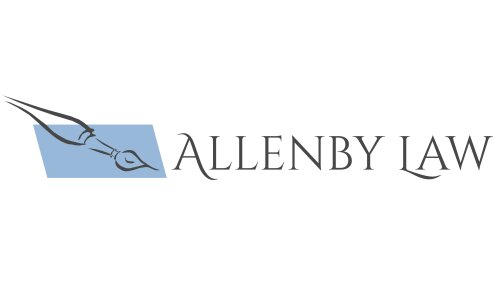Best Communications & Media Law Lawyers in Fort McMurray
Share your needs with us, get contacted by law firms.
Free. Takes 2 min.
List of the best lawyers in Fort McMurray, Canada
About Communications & Media Law in Fort McMurray, Canada
In Fort McMurray, Canada, Communications & Media Law governs the regulation, operations, and legal responsibilities of entities in broadcasting, telecommunications, advertising, and digital media sectors. This area of law is particularly significant due to the increasing importance of digital communication and content creation in today's society. It covers a wide range of issues including copyright laws, freedom of expression, media regulations, and intellectual property rights. The aim is to ensure fair and balanced media practices while protecting the rights of individuals and corporations involved in these fields.
Why You May Need a Lawyer
Individuals and businesses may need a lawyer specializing in Communications & Media Law for various reasons. These can include disputes over copyright infringements, navigating the complexities of advertising standards, handling defamation claims, or ensuring compliance with broadcasting regulations. Additionally, legal assistance can be invaluable for digital content creators who wish to protect their intellectual property or need advice on privacy issues related to online media platforms.
Local Laws Overview
In Fort McMurray, Communications & Media Law is influenced by both federal and provincial legislation. Federally, the Canadian Radio-television and Telecommunications Commission (CRTC) sets out regulations for broadcasting and telecommunications. Provincially, Alberta has its own set of regulations that address media practices within the region. Compliance with these laws is crucial for media entities to operate legally and avoid penalties. Key aspects include the protection of personal information, adherence to advertising and broadcasting standards, and respect for language rights in media communications.
Frequently Asked Questions
What is the role of the CRTC in Communications & Media Law?
The CRTC is a regulatory body that oversees broadcasting and telecommunications in Canada. It ensures that media practices adhere to national standards and that services are accessible to all Canadians.
How is freedom of expression protected under Communications & Media Law?
While freedom of expression is a fundamental right in Canada, it is not absolute. Media law balances this right with the need to prevent harm, protect intellectual property, and ensure public safety.
What should I do if I believe my intellectual property has been infringed?
Contacting a lawyer specialized in Communications & Media Law is advisable. They can assist you in navigating the process of filing a claim and seeking damages.
Are there specific regulations for online advertising?
Yes, online advertising must comply with both federal and provincial laws which cover issues such as truthfulness, misleading claims, and user data protection.
What legal considerations are there for starting a broadcasting service?
Starting a broadcasting service requires compliance with CRTC regulations, obtaining the necessary licenses, and meeting content requirements designed to reflect Canadian culture.
How can I file a defamation claim against a media entity?
To file a defamation claim, consulting with a lawyer is crucial. They will help you gather evidence, prove your case, and seek appropriate legal recourse.
What are the rules regarding the advertisement of children’s products?
The advertisement of children's products is heavily regulated to avoid misleading or harmful content. Advertisers must ensure their messages are appropriate and truthful.
Can I freely use media content found online for my projects?
Using online media content often requires permission from the copyright holder. Unauthorized use can lead to legal consequences under copyright laws.
What privacy laws apply to social media platforms?
Privacy laws require social media platforms to protect user data and inform users about how their data is being used. Compliance with such laws is essential to prevent breaches.
Are there language requirements for media in Fort McMurray?
Yes, media must follow language laws which often require that content be available in both of Canada's official languages, English and French, depending on the audience and service area.
Additional Resources
For those seeking further assistance in Communications & Media Law, consider reaching out to the CRTC, the local Law Society of Alberta, or the Fort McMurray public library's legal resources section. Additionally, professional organizations such as the Canadian Media Producers Association (CMPA) offer helpful guidelines and support for media professionals.
Next Steps
If you require legal assistance in Communications & Media Law, your first step should be to consult a local lawyer specialized in this field. They can provide personalized advice tailored to your situation. Legal consultations can help you understand your rights, lessen potential legal exposure, and guide you in complying with all relevant regulations and standards.
Lawzana helps you find the best lawyers and law firms in Fort McMurray through a curated and pre-screened list of qualified legal professionals. Our platform offers rankings and detailed profiles of attorneys and law firms, allowing you to compare based on practice areas, including Communications & Media Law, experience, and client feedback.
Each profile includes a description of the firm's areas of practice, client reviews, team members and partners, year of establishment, spoken languages, office locations, contact information, social media presence, and any published articles or resources. Most firms on our platform speak English and are experienced in both local and international legal matters.
Get a quote from top-rated law firms in Fort McMurray, Canada — quickly, securely, and without unnecessary hassle.
Disclaimer:
The information provided on this page is for general informational purposes only and does not constitute legal advice. While we strive to ensure the accuracy and relevance of the content, legal information may change over time, and interpretations of the law can vary. You should always consult with a qualified legal professional for advice specific to your situation.
We disclaim all liability for actions taken or not taken based on the content of this page. If you believe any information is incorrect or outdated, please contact us, and we will review and update it where appropriate.









